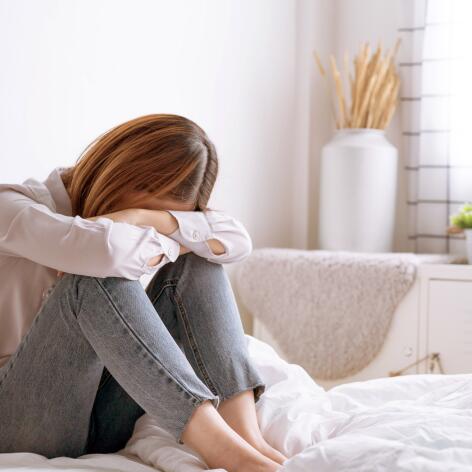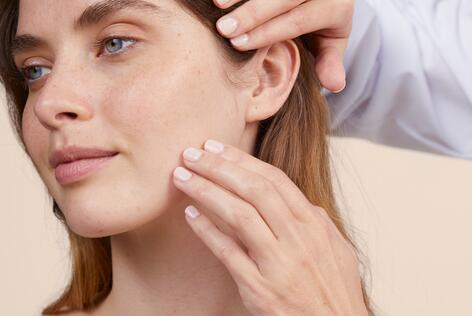The psychological impact of acne on teenagers
The psychological impact of acne on teenagers
Adolescence is a time of many upheavals, some of which can be difficult to understand. Girls' and boys' bodies change due to hormones, which also cause acne. Even when the acne is not very severe, its possible psychological impact should be taken into consideration by the adults supporting adolescents during this sensitive and even disturbing period. The key word is serenity, because there are answers out there.
Acne: hormonal upheaval and psychological impact
In both girls and boys, acne develops on the face, but also sometimes on the back, shoulders and chest. It appears during puberty due to hormonal changes that are also responsible for the development of hair, breasts, testicles, etc.
This transition from childhood to adolescence is also accompanied by psychological and behavioural changes, which are perfectly normal: teenagers now identify more with their friends than with their family. They also become very concerned about the image they’re projecting. And when acne interferes with this image, it can be difficult for some to live with.
Sometimes acne can be a disaster, especially when it’s severe. The psychological impact of acne, often combined with other elements, can even lead to depression. Fortunately, it’s possible to limit this impact.

"My acne started when I was 12-13 years old. First it was on my face, especially my forehead, chin and nose. Then I had some acne on my upper back, shoulders and chest. I had quite a bad experience. My friends used to make fun of me, but it was quite hurtful."
CLÉMENT, 16 YEARS OLD
How to limit the psychological impact of acne
Some preconceived ideas are hard to shake: for example, that acne is the result of poor hygiene or that it condemns you to no social or romantic life because of the way you look. These ideas are obviously false.
Moreover, to escape the judgement of others, it can be tempting to stay isolated, but this will only contribute to low mood. So, what to do? You can start by keeping in mind that acne affects up to 80% of teenagers. It is extremely common, and it can already feel better to know that.
Next, you should know that acne is not at all related to a lack of hygiene; it is a disease triggered by hormones and it can be aggravated by lifestyle. Factors such as stress, a diet too rich in sugars, and unsuitable cosmetics can all contribute to the development and persistence of acne.

Treating acne to reduce the psychological impact
Acne is a disease, and a treatable one. Its treatment may involve several different health professionals.
Your GP
Your GP can be the first port of call if acne is having an impact on self-esteem. Your GP is your "family doctor", the person you feel you can trust and talk to. Acne that’s treated quickly has a better chance of improving. Your GP can also make a referral to a dermatologist.
The dermatologist
They are THE skin doctor. A dermatologist will first assess the nature and severity of the acne and suggest appropriate treatments. They will also give advice on daily hygiene, which should be followed as strictly as the treatment to ensure that the condition of the skin condition.
FRIENDLY (AND EXPERT) ADVICE
It can be difficult to deal with acne in front of others, but staying isolated is never the answer.
Whether or not acne requires treatment by a dermatologist, the skin needs to be pampered! When in doubt, you can never have too much support with finding the right products. Skin that has been weakened by treatments doesn’t have the same needs as skin that is "just" oily with spots. And, again, unsuitable products can lead to acne breakouts.
It's also an option to use make-up when you have acne on your face. From simple concealers to tinted creams and foundations, it's best to choose non-comedogenic products that allow the skin to breathe. And, of course, make-up needs to be removed every night, and pimples shouldn't be touched, or they'll end up looking worse.
The right things to do to reduce the psychological impact of acne
Following treatment and/or observing a daily skincare routine with the right products is the first step to saying goodbye to acne. Even if the road may seem long at times, it’s important not to give in to discouragement! Consistency is key.

Our solutions for taking care of your acne-prone skin
Eau Thermale Avène products designed to reconcile you with your skin
NEWSLETTER
We’re always here for your skin!
All our tips for taking care of your skin day to day.

Which skin care routine should you adopt?
Identify what it really needs with the help of our experts and discover the most suitable skin care routine for you.

